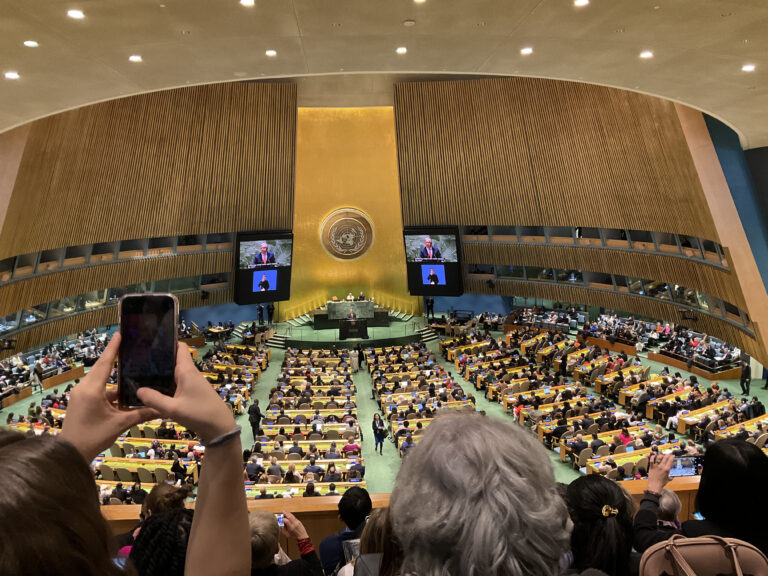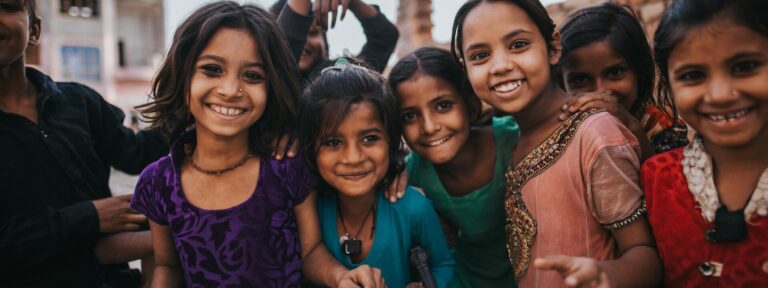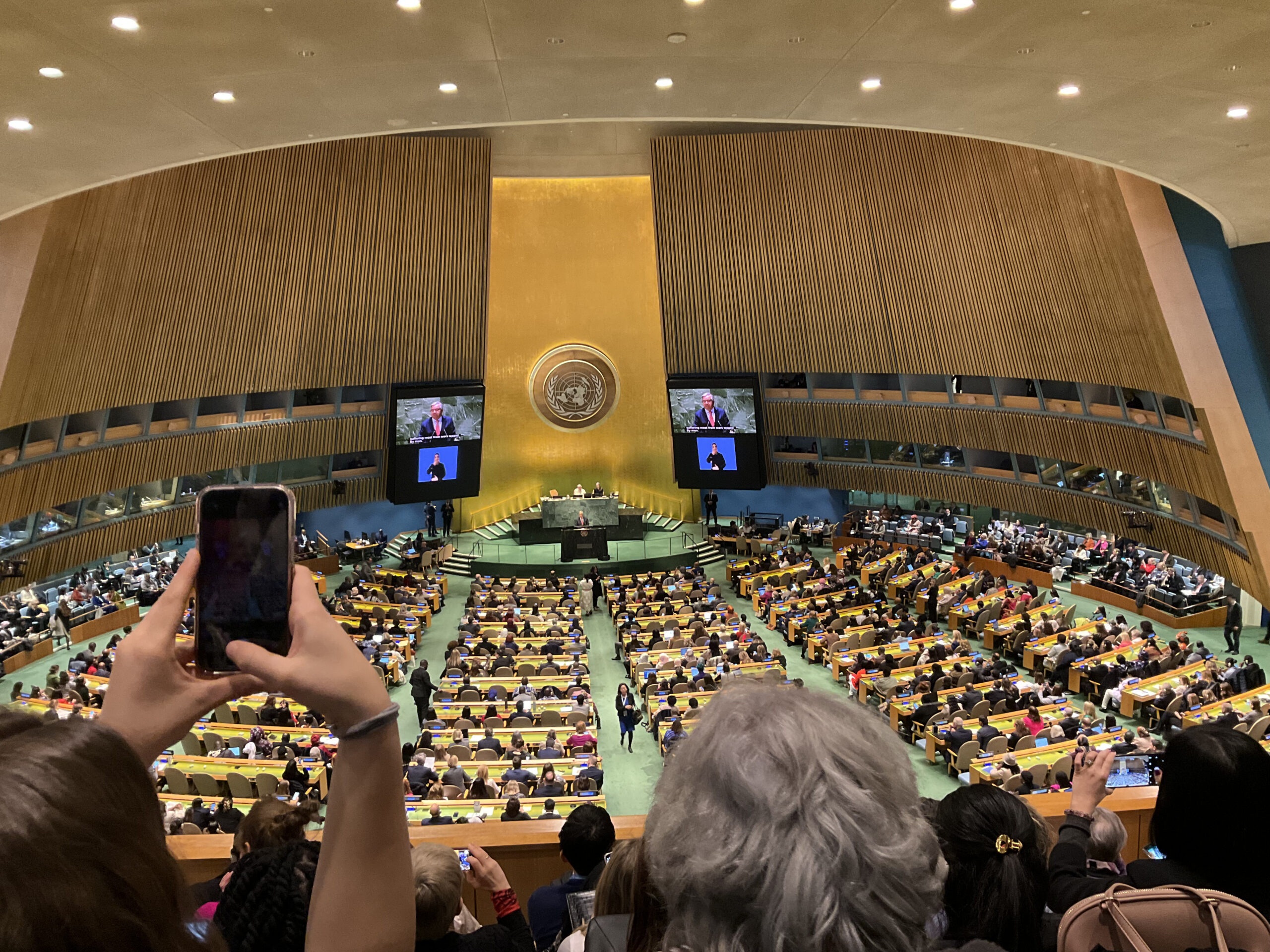
Building Population Matters’ momentum internationally
The Commission on Population and Development (CPD57) is underway, and Population Matters plans to make a strong showing! In this blog post, our Content and Campaigns Specialist, Florence Blondel, shows how we’ve already established ourselves as one of the leading voices in population and development through collaborative efforts.
Earlier in March during CSW68, we had an opportunity to attend the first preparatory consultancy meeting with the Chair in New York where I raised the importance of making interconnections between our current crises and the importance of investing in women and girls’ rights, particularly in family planning.
So it was pleasing when in April, a 12-point Zero Draft on which we were called to consult had two outstanding points. The third, which recognises that,
…in a demographically diverse world of 8 billion, population dynamics, including population growth, population ageing, urbanization and migration, will continue to shape the world for current and future generations, including in the areas of poverty eradication, access to health care and education, gender equality, patterns of production and consumption, and environmental degradation.”
and number 11, which calls for a push to,
…strengthen research on the linkages between population and sustainable development, and take account of population trends and projections in development strategies and policies.”
During the virtual event, UN Ambassador Madrid recognised the contributions of stakeholders, including those from the initial meeting in New York that were added to the Zero Draft.
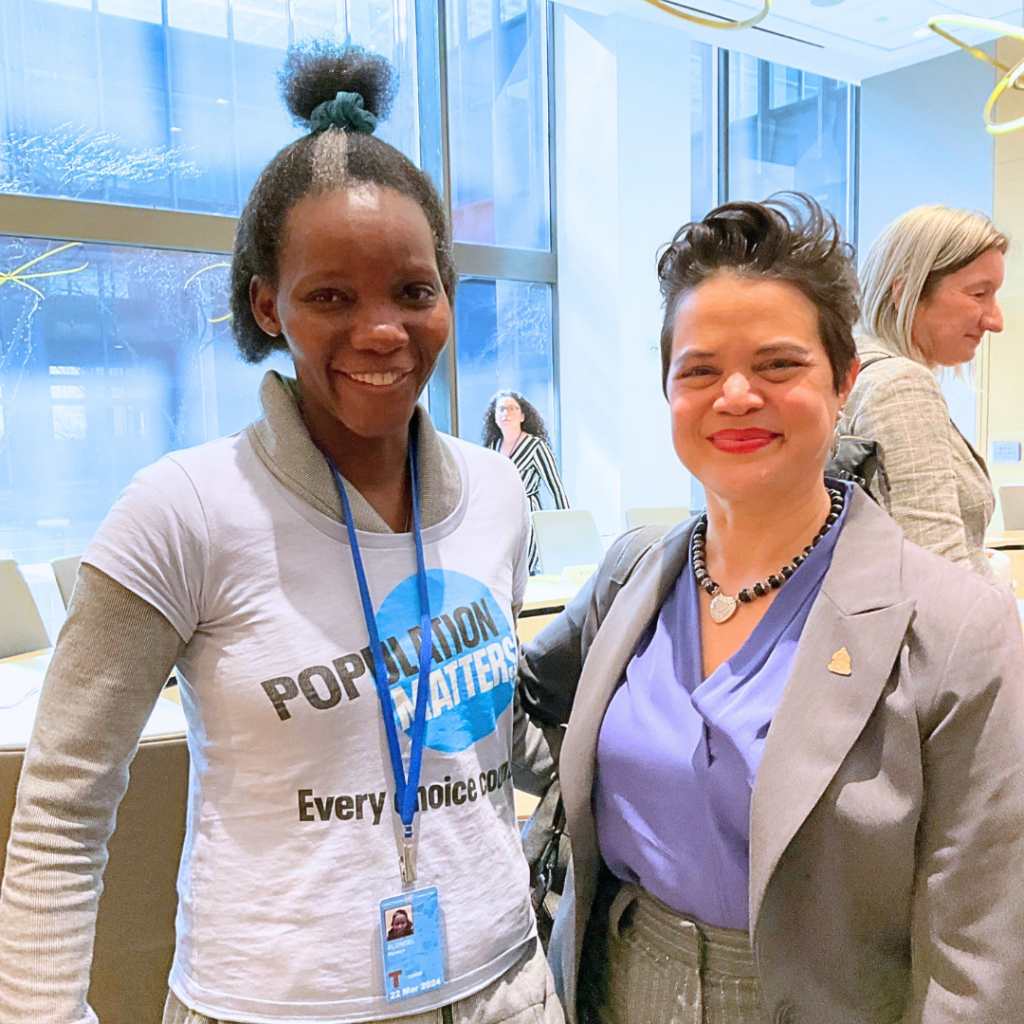
A UNIFIED VOICE FOR SUSTAINABLE SOLUTIONS
Florence spoke on behalf of Population Matters, Population Connection, and Population Media Center – all international organisations focused on achieving sustainable development through practical and ethical empowering population solutions for the benefit of people and planet.
Our message was clear. Sustainable development hinges on addressing global population trends and while population is a complex issue, solutions exist. They prioritise empowering individuals, particularly women and girls. We emphasised the urgent need for increased access to family planning and education for girls. With over 257 million women worldwide lacking access to safe and modern contraception, the challenges are significant. Yet, the solutions are achievable.
Expanding access to contraception would not only empower individuals but is also relatively inexpensive – requiring an increase from the current $7.1 billion annually to $12.6 billion. This would also alleviate poverty and environmental pressures. Furthermore, we highlighted the importance of doing this alongside dismantling systemic barriers rooted in patriarchy that perpetuate gender inequality.
BREAKING THE CYCLE OF GENDER INEQUALITY AND POVERTY
UNDESA rightly states that:
“…rapid population growth, high fertility and gender inequality often go hand in hand.”
Limited access to education and family planning disproportionately impacts women and girls, trapping them in a cycle of poverty. Empowering women through education and increased autonomy is not just morally right, it’s essential for achieving the 2030 Sustainable Development Goals (SDGs) including “playing a critical role in tackling climate change“. Of concern too are the millions of young girls – children – forced into marriage. We called for a 20-fold increase in the rate of decline.
SUSTAINABLE CONSUMPTION AND AGEING
As organisations that not only care about women’s rights but also the environment, we called for acknowledgement of the impact of population growth on resource consumption and environmental degradation. We also emphasised the need for policies that adapt to an ageing population. By 2050, older people over 65 years will account for more than 16 percent of the global population.
There should be no excuse for any government to demand that women bear children to address this change. The rise of regressive, nationalistic, pronatalist policies in many countries across the world is worrying. They are not the answer. Strategies to support ageing populations and ensure social security are crucial — from pension reform to increased investment in preventative health.
REVISITING THE CAIRO AGENDA: BRING BACK THE P
The 1994 Cairo Programme of Action was clear on the benefits of slowing population growth and the urgent need to empower all women and girls, yet the world has failed them.
When we leave the P out of the ICPD, we cannot achieve the goals of the ICPD…“
Dr Kanyoro Musimbi, 2009
We believe it is high time the P was looked at more critically and it could explain why the Chair said in March this year that,
…the Commission has failed to recognize the value of the Cairo agenda and 5 out of the 10 last years, it has not obtained an outcome. This has undermined the credibility of this Commission and the enduring relevance of Programme of Action. On the occasion of its 30th anniversary, it is time to reverse course.”
Reversing the course would be respecting all points on the Zero Draft, particularly points three and 11. The Commission must recommit to its principles and ensure population dynamics are considered in all development strategies. To be concerned about population is to be concerned about people, their needs, their rights and those of future generations. As Dr. Kanyoro aptly stated,
No one doubts the value of empowering women through education, but when population grows this fast, countries are simply not able to sustain their development. And when education and health systems are overwhelmed or fail all together, I can assure you that it is women and girls who suffer first and most.”
Looking Ahead
We insisted on ending the siloing of environment and population policy as the two are inextricably linked and synergistic. We pledged to collaborate with the UN and other stakeholders to ensure the Programme of Action (PoA) remains a vital framework for achieving sustainable development in a world of 8 billion plus people. We believe that investing in gender equality; higher education, especially for girls and reproductive health — with a particular emphasis on scaling up access to voluntary family planning — is key to a successful future.
MAKING A STATEMENT: A CONTINUING COMMITMENT
Reflecting on our engagement at CPD56 in 2023, our very first, we anticipate another opportunity to present an oral statement at CPD57. We aim to reaffirm the importance of the PoA and Agenda 2030, emphasising the critical linkages between population dynamics and the Sustainable Development Goals, with a particular emphasis on investing in women and girls.
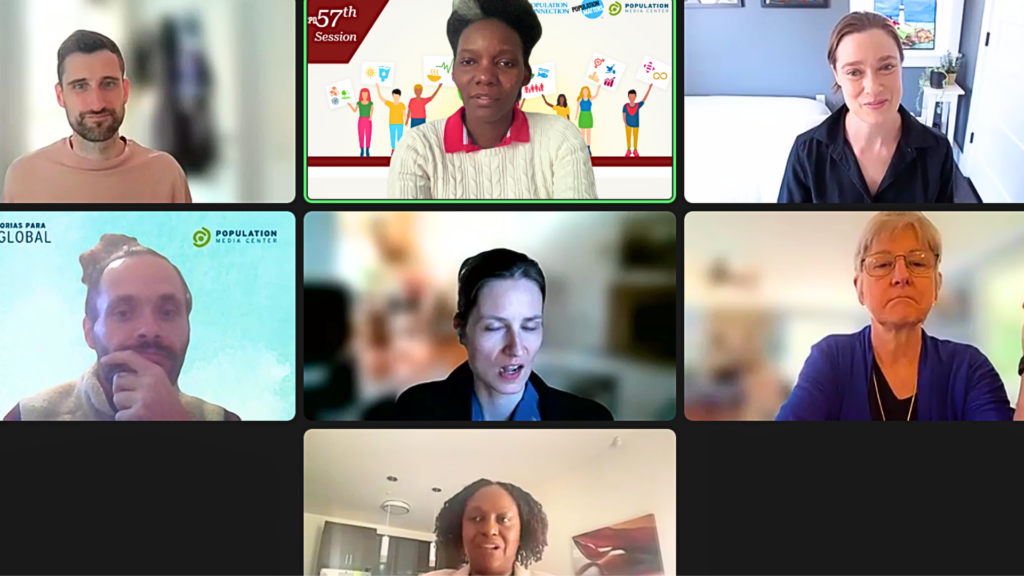
We have already had a pre-CPD57 virtual event highlighting how addressing the critical connections between population and sustainable development can help increase funding for international reproductive health and rights with a focus on Population Health Environment. This proactive approach has generated significant visibility, making us recognisable figures in the community.

